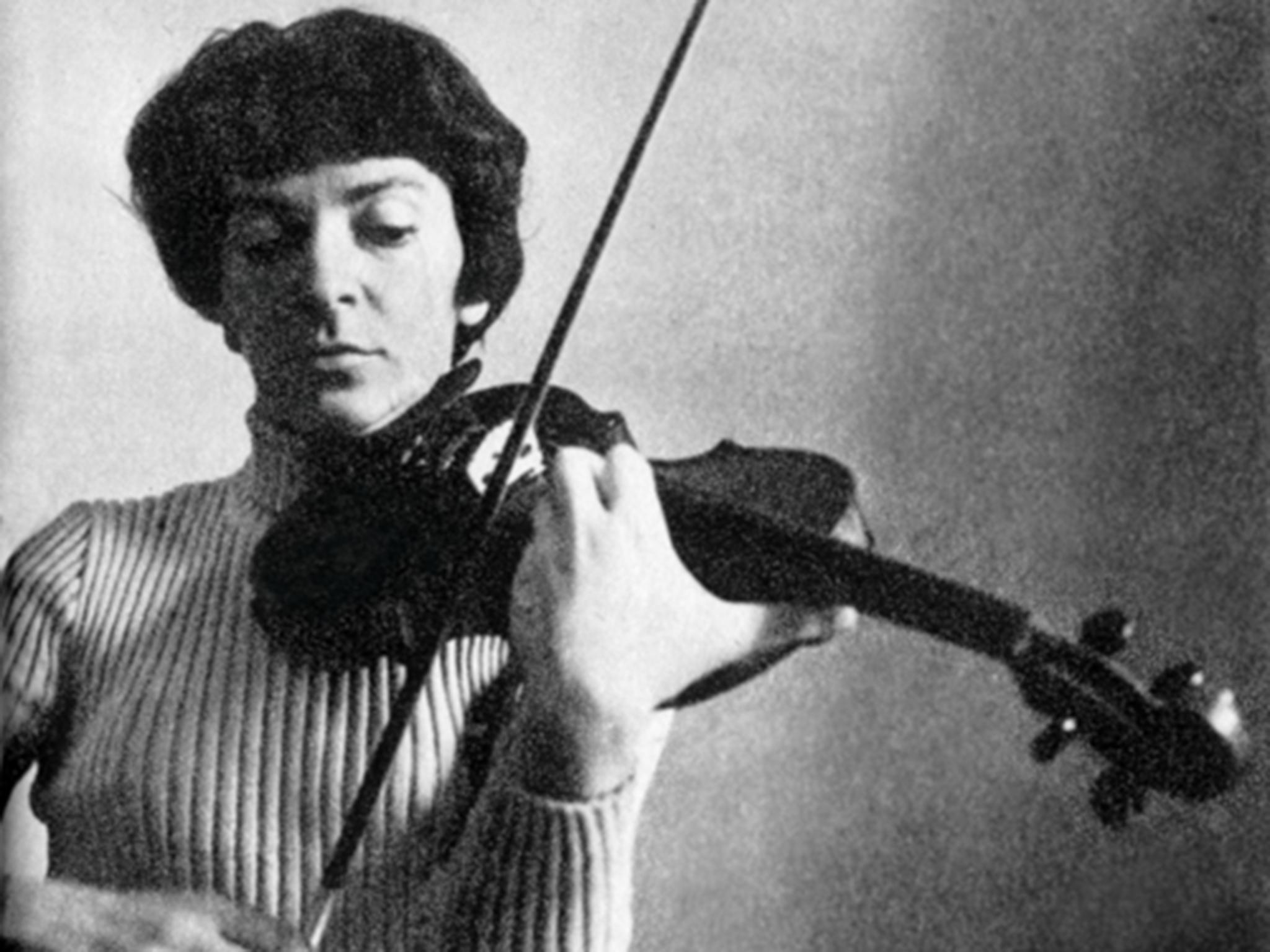Wanda Wilkomirska: Polish violinist who rose to fame during the communist era
Having worked with Leonard Bernstein and Zubin Mehta in a career spanning decades, she gained distinction in later life as a teacher and academic

“I started singing almost before I was talking,” said Wanda Wilkomirska the celebrated Polish violinist, who has died aged 89. “It was automatic that I should be a musician.”
Wilkomirska was born in Warsaw to a musical family. She learned violin from her father, Alfred. Her mother, Dorota, was a pianist and teacher of music who published musical collections for children.
Having taken up violin at the age of five, Wilkomirska made her first public appearance aged seven. She would later form The Wilkomirski Trio with her sister Marian on piano and brother Kazimierz on the cello.
As a teenager, Wilkomirska studied at the Academy of Music in Lodz, under the famed violinist Irena Dubiska, before heading to the Franz Liszt Academy of Music in Budapest. Her talent was obvious from an early age. In 1946, at the age of 17, she won a competition in Geneva.
At Leipzig in 1950, she came second in the International Johann Sebastian Bach Competition. In 1953, aged just 24, she was awarded the Polish State Award for her “eminent violin artistry”.
Two years later, in 1955, Wilkomirska became principal soloist for the Warsaw National Philharmonic Orchestra, a position created specifically for her that she would hold for 22 years.
In her capacity as soloist, she performed at the inauguration of the rebuilt Warsaw Philharmonic Concert Hall and toured all over the world. She played a violin crafted in 18th century Venice by Petrus Guarnerius and performed with conductors such as Leonard Bernstein and Zubin Mehta. Her repertoire was extensive but her passion was always Polish contemporary music.
It was with the Warsaw National Philharmonic that Wilkomirska first travelled to the US. She appeared at the Carnegie Hall, playing the Karol Szymanowski’s first violin concerto to great acclaim. However, she did not receive a warm welcome in New Orleans.
Having revealed in a newspaper interview that she was a member of the Communist party, Wilkomirska was greeted by an American Legion picket line carrying signs that declared, “The Stars and Stripes are our culture. No red stars wanted here”.
Not only was Wilkomirska a member of the Communist party at home, she was married to a party official. Her husband, journalist Mieczysław Rakowski, whom she married in 1952, became editor-in-chief of weekly news magazine Polityka in 1958. He was also a member of the Central Committee of the Polish United Workers’ Party. Wilkomirska and Rakowski had two sons but divorced in 1977, due to Rakowski’s infidelity. However, when Rakowski became Poland’s last communist prime minister, in 1988.
His reformist approach was still in many ways influenced by his ex-wife and the dissidents to whom she introduced him during their marriage.
During the 1970s, despite her Communist party affiliations, Wilkomirska was increasingly supportive of Polish dissidents. After martial law was imposed in Poland in 1981, resulting in restrictions on overseas tours, Wilkomirska decided it was time to defect.
She made her announcement during a tour of Germany in 1982. She was joined by her son Arthur.
In exile, Wilkomirska became music professor at the Mannheim university of music and performing arts, stepping back from performing to devote herself to teaching instead.
Fearful of her talent having lost its vitality, she was keen “not to play even one day too long”. She said: I am obsessed with that thought and I believe that my career will end much earlier than it could. I witnessed the way great legends were destroyed, the way artists agreed on people saying, ‘For her age she is still doing fine.’ I believe one can have a beautiful old age without trying to do what we used to do when we were young… But one has to do something and so I teach.”
Wilkomirska travelled the world with her violin but it was Australia that captured her heart. In 1973, she was the first violinist to perform solo at the Sydney Opera House. Just over 25 years later she moved to Sydney to teach at the Sydney Conservatorium of Music.
“I really like Australia,” she said. “In the evening I close my classroom and leave. The school is very close to the opera. I take a path between palms and head towards the closest subway station, I get out at the third stop right onto Bondi Junction, a very popular place in Sydney. I smell Thai, Arabian, Turkish, and Chinese scents and become incredibly hungry. I am tired. I am happy.”
Wilkomirska also taught at Australian National Academy of Music in Melbourne. However, she continued her association with Europe, flying back to play occasional concerts. Among her fans was Pope John Paul II, who invited her to play at the Vatican.
The musician spent her final years at a residence for retired Polish artists. She is survived by her two sons, Vladimir and Arthur Rakowski.
Wanda Wilkomirksa, violinist and academic, born 11 January 1929, died 1 May 2018
Join our commenting forum
Join thought-provoking conversations, follow other Independent readers and see their replies
Comments
Bookmark popover
Removed from bookmarks